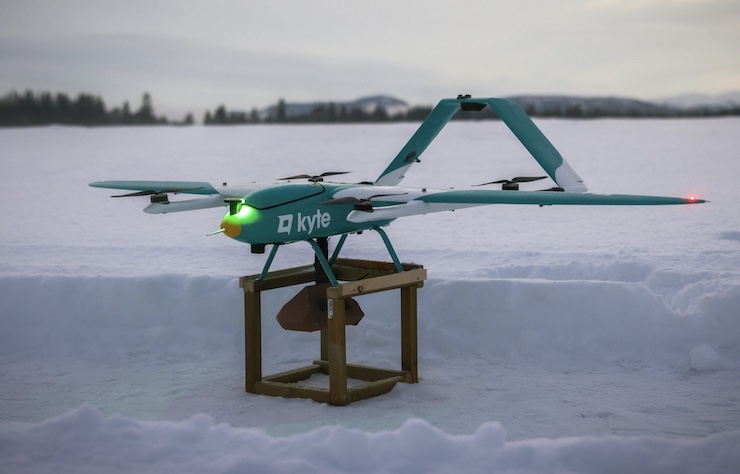Could a Little-Known Norwegian Delivery Drone Overtake the Global Competition?

2024 promises to be a banner year for small package delivery drones, with several FAA-certified UAV companies – including Zipline, Drone-Up and Wing – surging to the forefront of the US market. But they shouldn’t get too comfortable. Across the pond, some lesser-known drone companies, including Ireland’s Manna, and a little-known Norwegian upstart, Aviant, with its state-of-the-art Kyte drone, are also poised for expansion. These companies, as well as China-based DJI – with its newest edgy offering – the FlyCart30 –have ambitions of establishing their own drone hubs. The competition for market share – already apparent in the Dallas-Fort Worth region – could soon become quite fierce.
Aviant may be something of a “sleeper” operation, due largely to its location in Norway, which at first glance, seems well off the beaten drone trail. But the company’s Kyte drone has been tested for some time, with consumers in Trondheim, and is now ready for full-fledged delivery operations around Lillehammer, a world-renown ski resort with a population of 27,000 in Norway’s south.
The forward-flying eVOTL drone has a wingspan of about 8 feet and weighs about 35 pounds. That makes it a larger and heavier – and more durable – aircraft than most US delivery drones, despite its maximum payload of just 4.5 lbs – comparable to that of its rivals What makes the Kyte special, perhaps, is its flying range of 20 miles, and its service area – a 10 mile radius around Lillhammer, including remote mountainous villages that are nearly impossible to access by either means. The craft is also configured to fly year-round in the region’s sub-zero temperatures amid heavy winds. There’s no other small cargo drone craft quite like it.
“Our design was the culmination of several factors, most notably the need to operate in extreme weather conditions, maneuver with agility, fly further distances, all while offering the aerodynamics to fly at high speeds,” says Aviant’s co-founder and CEO Lars Erik Fagernæs.
Consumers can choose from a range of products on the Kyte app; they can also specify the drop-off point and track their package’s arrival online. Aviant claims its consumers can receive their package in just 24 minutes – and that delivery will be made to a drop zone within a one-meter accuracy. It’s an incredibly tall order, given the region’s wind and climate conditions.
Aviant did make one change to its delivery mode after the initial Trondheim trial to help ensure customer satisfaction. Originally, it planned to drop packages by parachute, much as Zipline once did, but to ensure greater accuracy, the craft now hovers and with a retractable winch, automatically deploys the package upon arrival.
Aviant, like many drone companies, first got its start delivering vaccines and other medical supplies during the COVID-19 pandemic. In 2021, it expanded to milk and water samples, and then in 2023, in Trondheim, to meal and grocery delivery. Its deliveries in Lillehammer will cover the full range of items from all of the area’s merchandise stores and restaurants.
So far, Aviant has received €1mn in public funding from Innovation Norway, with an additional $2.3 (€2.13) seed round in 2022. Its chief investor is Luminar Ventures, with additional support from Bring Ventures and GoFounder.
Aviant believes the versatility and range of its Kyte drone could one day make it the drone industry standard bearer – at least in northern Europe. It won’t happen overnight – or even this year. But the company’s got something special.
|